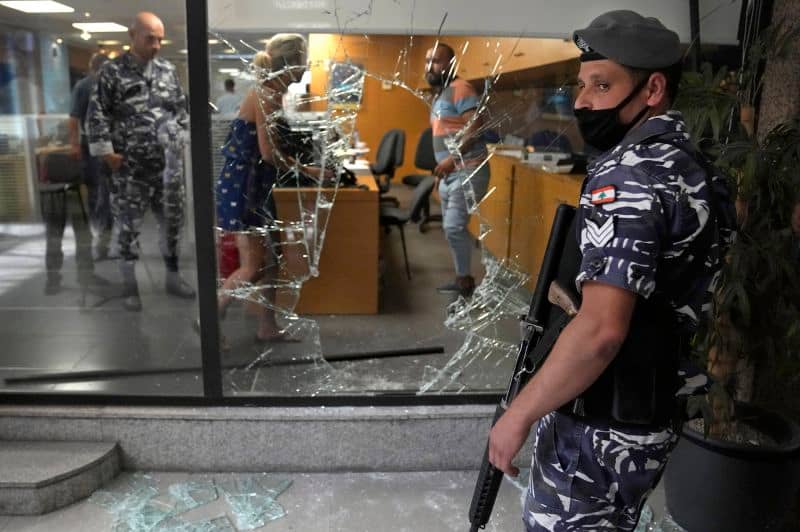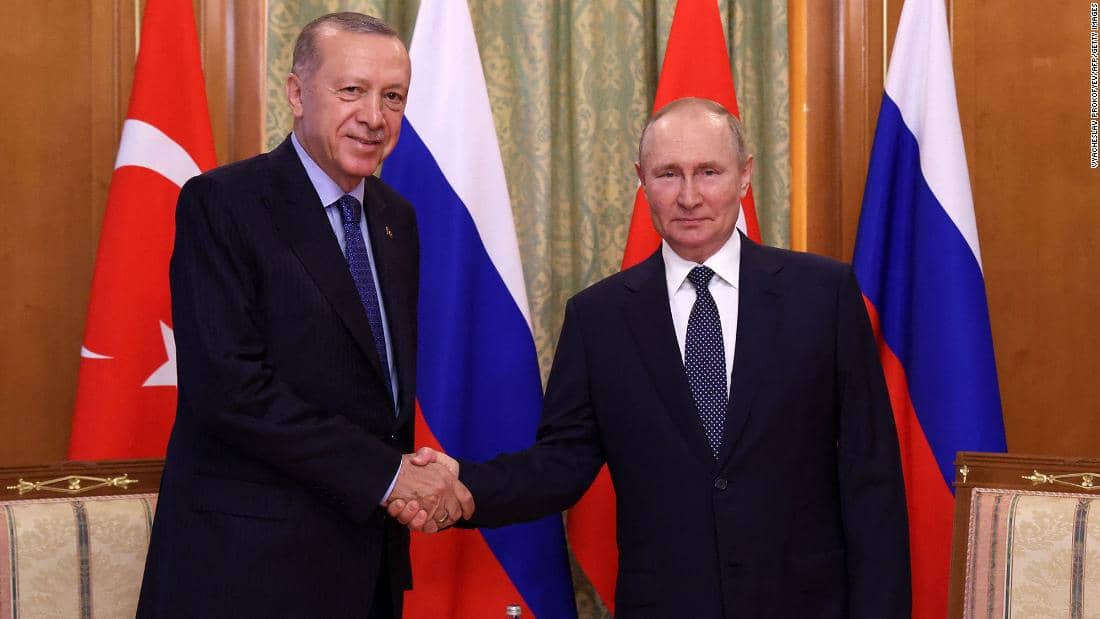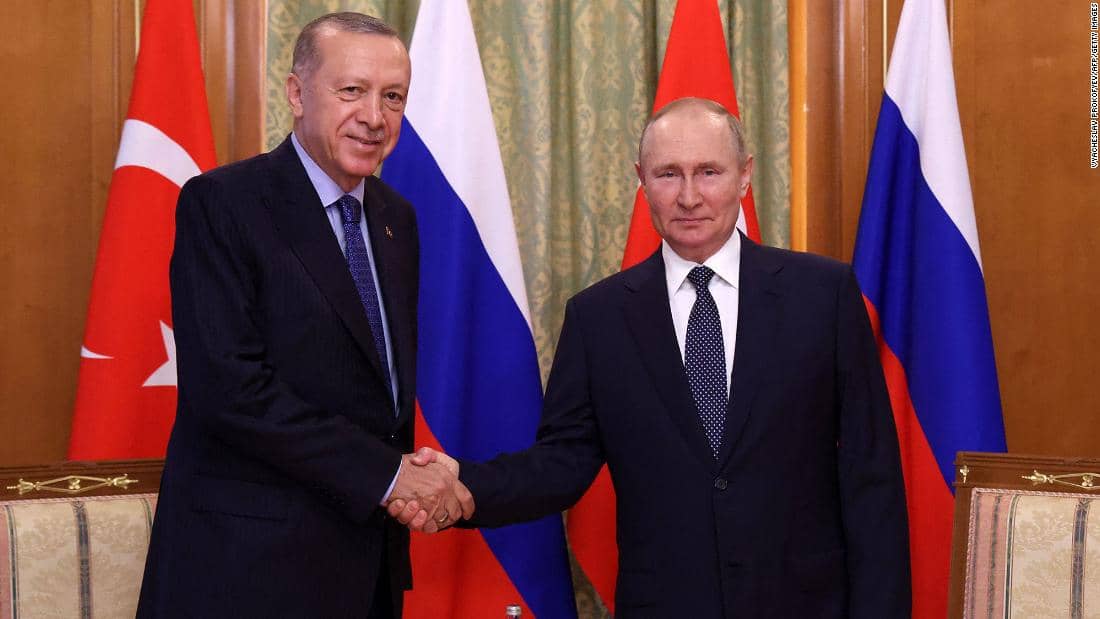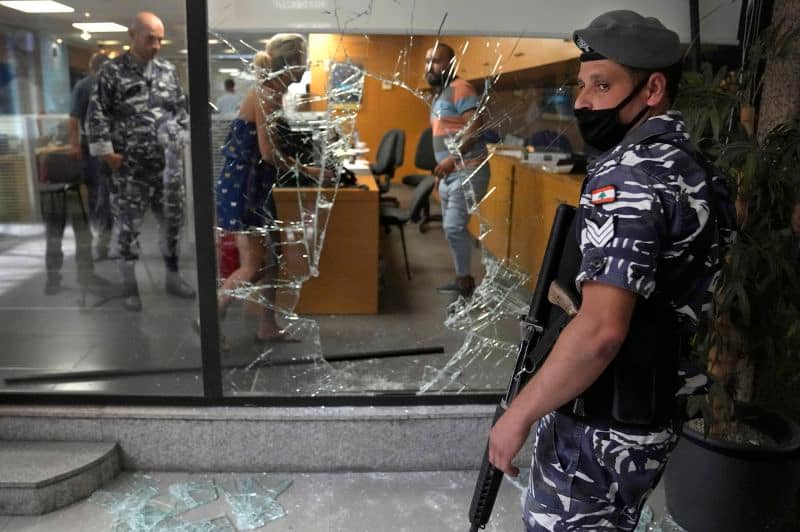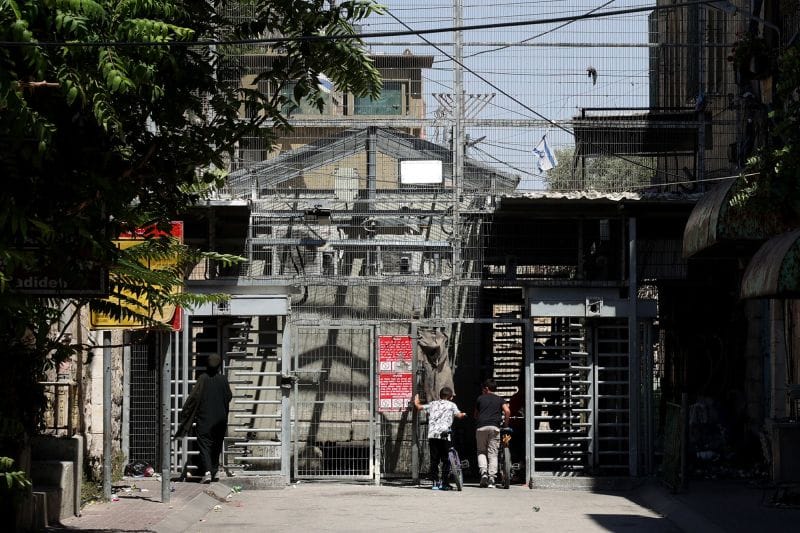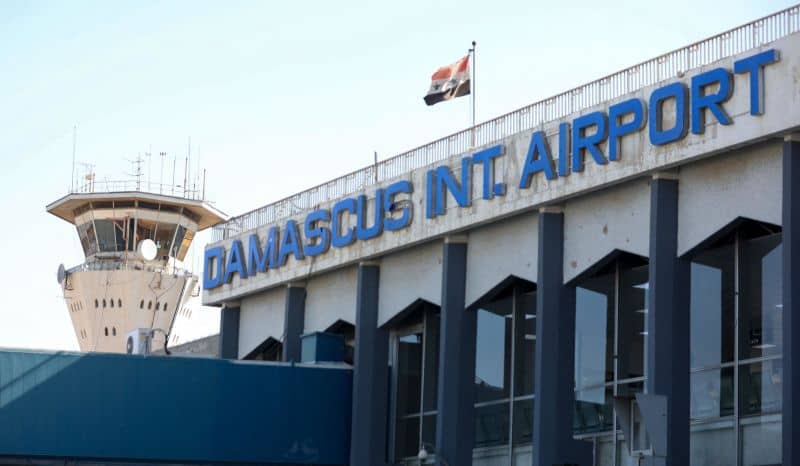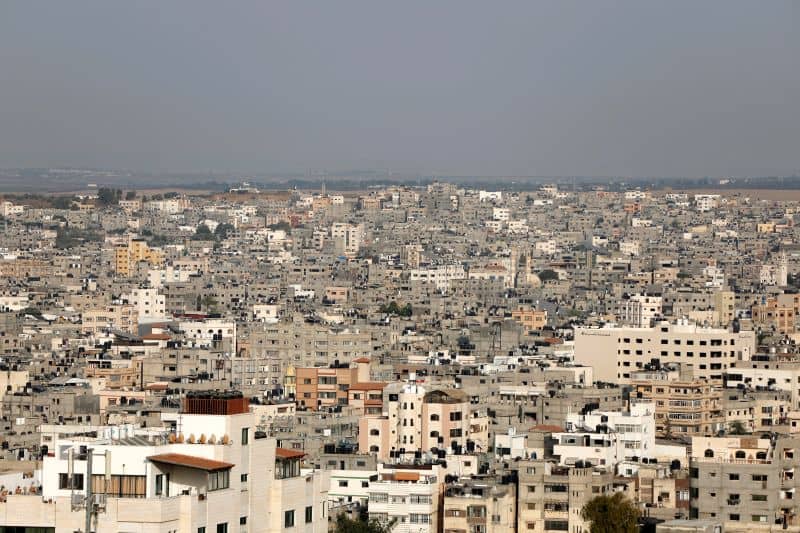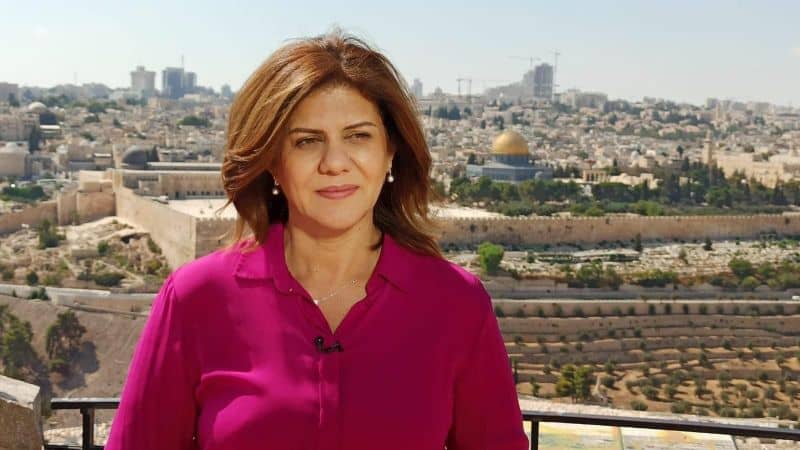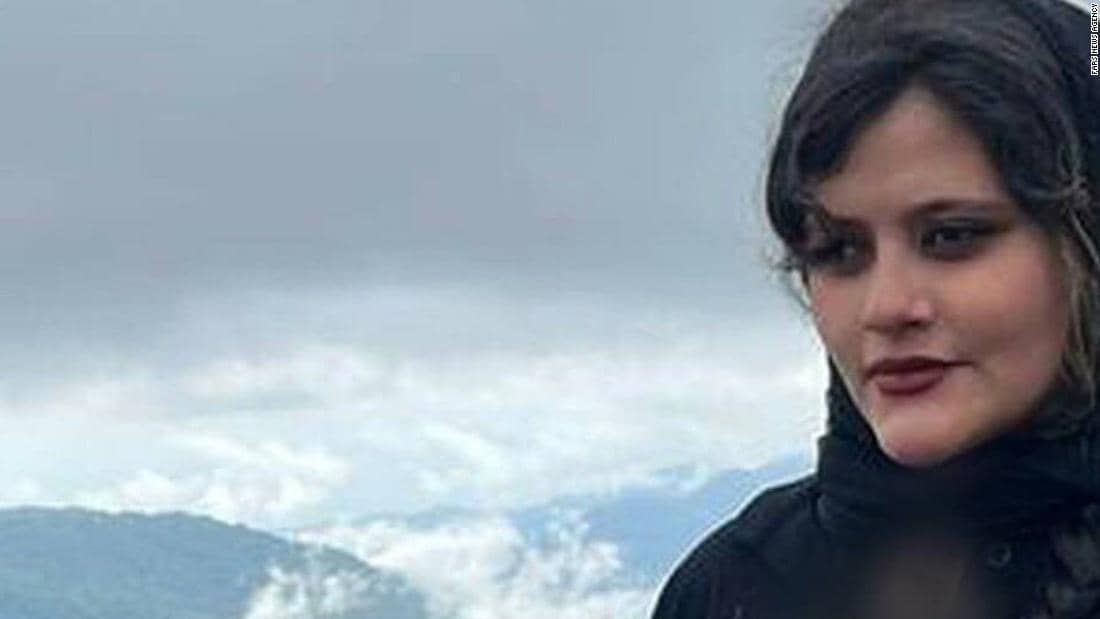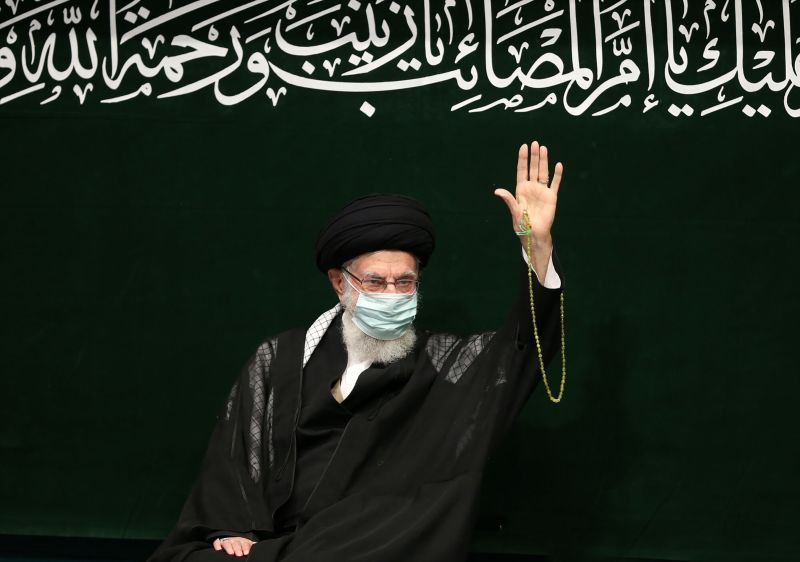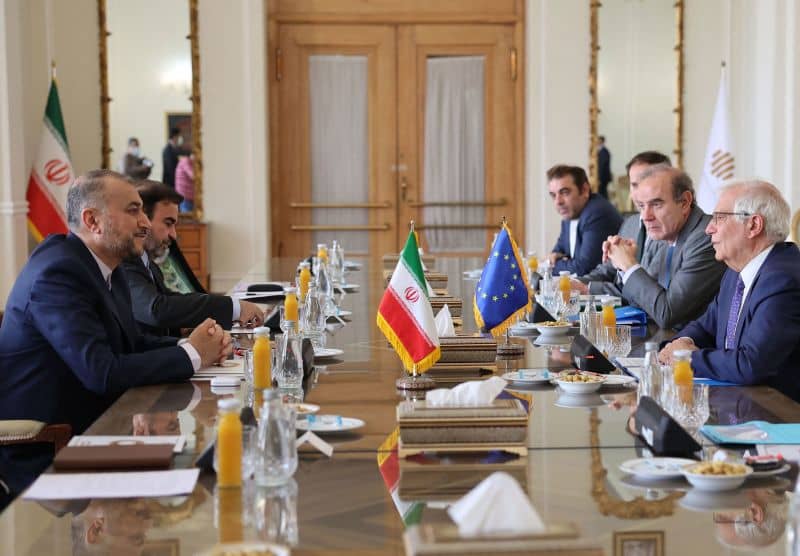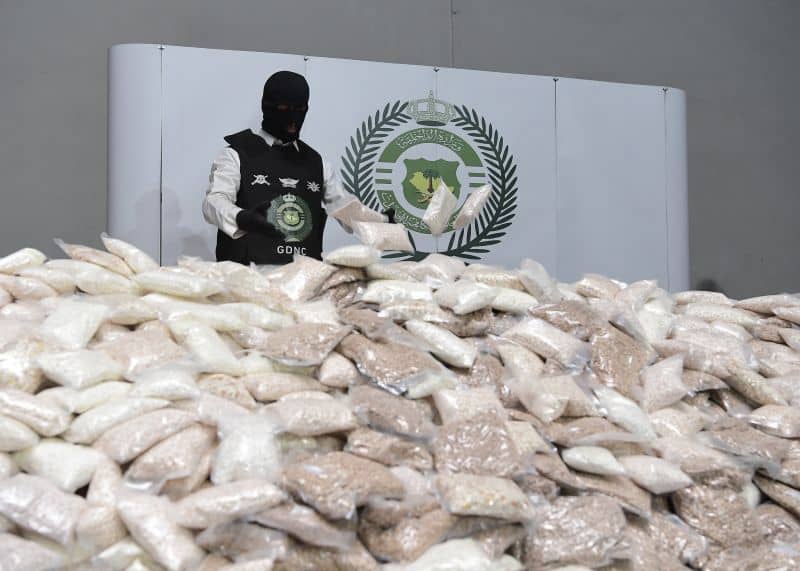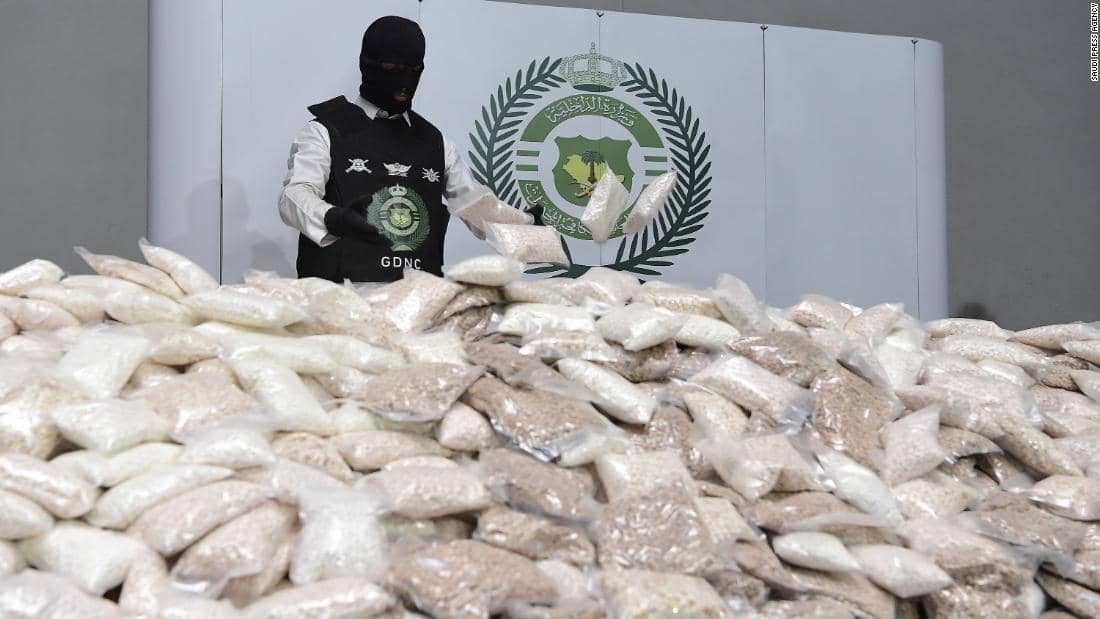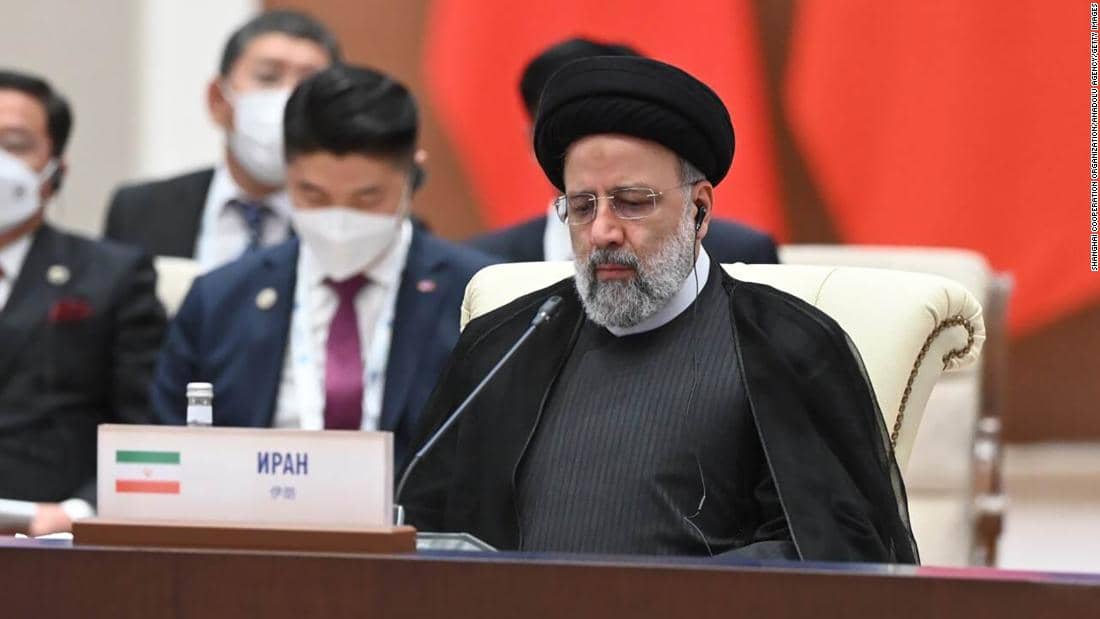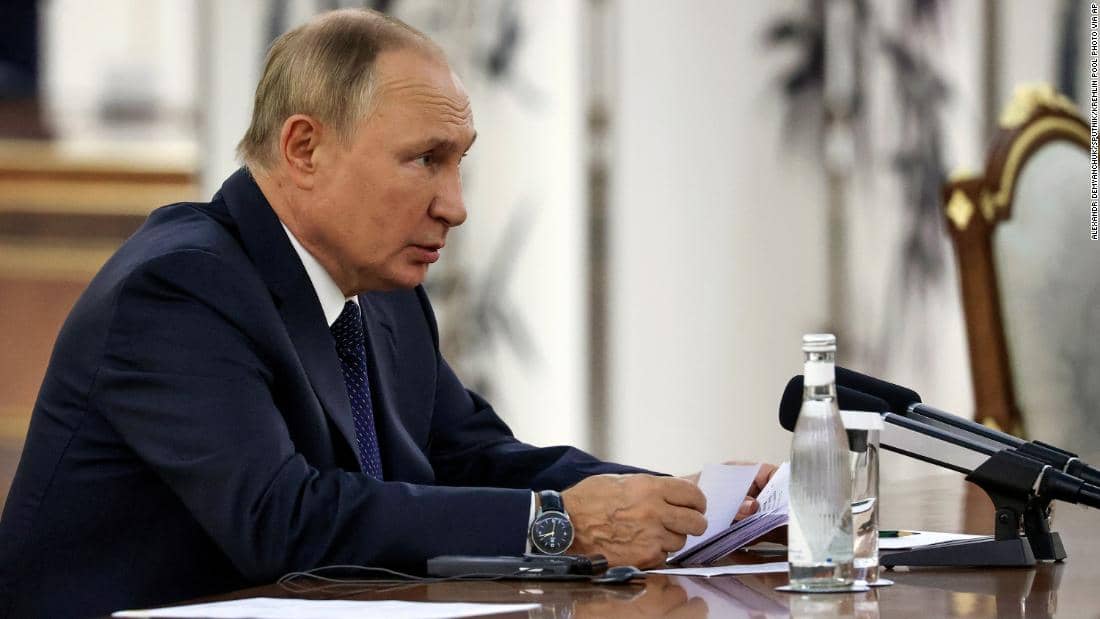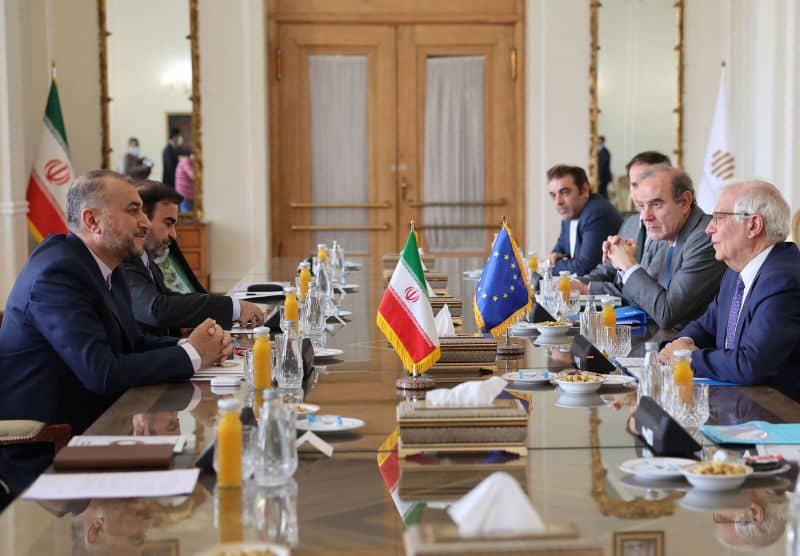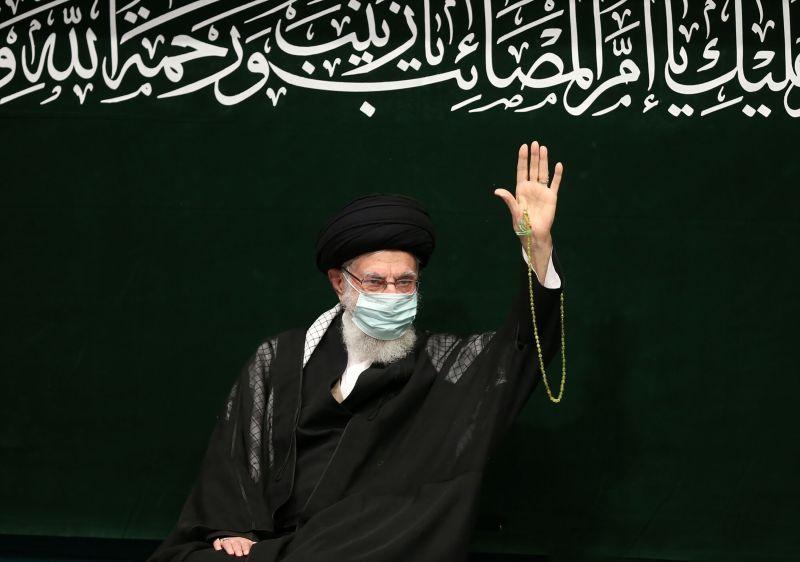Depositors held up at least five separate banks around Lebanon on Friday in an attempt to retrieve savings frozen in the banking system, a Lebanese army official told CNN. In one of
But in other ways, some of the region’s countries have prospered immensely as the fighting rages on, adding hundreds of billions of dollars to their coffers.
Here are four ways the Ukraine war has affected the Middle East over the last six months:
Energy exporters are cashing in
Strongmen feel emboldened
Regional strongmen that once came under harsh criticism from the West appear to be back in favor.
The war has also allowed Turkish President Recep Tayyip Erdogan to position himself as an indispensable figure in the international order. Faced with a sinking economy at home and elections next year, he has skillfully used his country’s geopolitical position to extract concessions for Turkey abroad by delaying the accession of Nordic countries to NATO. Erdogan has also maintained cordial relations with Russia while publicly opposing the war, selling coveted drones to Ukraine and even mediating between the belligerents.
Alliances are shifting
Food and inflation crises raise tensions
The first ship carrying grain left Ukraine on August 1 and was initially bound for Lebanon. The shipment however changed course after Lebanese buyers refused the delivery, so it sailed to Egypt instead, according to Reuters.
The digest
US airstrikes hit Iran-backed groups in Syria
The US military conducted airstrikes Tuesday targeting Iran-backed groups in Syria’s Deir Ezzor, US Central Command said in a statement. The strikes targeted “infrastructure facilities used by groups affiliated with Iran’s Islamic Revolutionary Guard Corps.” No one was killed in the attack, according to an initial assessment by the US military, but a Syrian activist group said at least 10 people were killed and three were wounded.
- Background: American troops have been present in Syria since 2015 to combat the Islamic State, which has often brought them into conflict with Iran-backed groups. Israeli airstrikes targeted the warehouses at the same location in January 2021, according to Syria’s state news agency. The attack comes amid reports of indirect talks on reviving the nuclear deal between Iran and the US reaching an advanced stage.
- Why it matters: As talks advance, the US may be sending a message that even though it is working on reaching an agreement with Iran, it will continue to target Iran-backed groups in the region. Washington has refused to remove the Iranian Revolutionary Guard Corps from its list of terrorist organizations, which Tehran had previously demanded.
Turkey says it has no preconditions for dialogue with Syria
In a softening of its stance, Turkish Foreign Minister Mevlut Cavusoglu said Ankara has no preconditions for dialogue with Syria but any talks should focus on security on their border.
- Background: Turkey cut ties with Damascus 10 years ago in response to the uprising in Syria and backed rebels fighting to topple the Bashar al-Assad regime. But Turkey has in recent years maintained contact with the regime, directly through intelligence channels and indirectly through the Astana Group process, which aims to solve the Syrian civil war.
- Why it matters: Turkish President Erdogan has indicated he wants to launch yet another military incursion into northeast Syria. Over decades of tension, Turkey has already launched three military operations against Kurdish fighters in Syria’s north, the latest of which was in 2019. Asked about prospects for talks, Cavusoglu said they would need to have specific goals. “No conditions for dialogue, but what is the aim, the target? It needs to be goal-oriented,” he said.
Beirut port silo collapses two years after fatal blast
The northern wheat silo damaged after the deadly Beirut port blast in 2020 collapsed on Tuesday, state-run NNA reported. A large dust cloud was sent into adjacent areas of the port after the implosion as smoke from fires continued rising from the debris.
- Background: On August 4, 2020, hundreds of metric tons of ammonium nitrate ignited, sparking a massive blast in the Lebanese capital’s port, killing more than 215 people and injuring thousands. The silos had been on fire since then. Over the past month, segments of the silos were collapsing gradually as the army continued cordoning the area.
- Why it matters: The silos had become a symbol of dysfunction in Lebanon. Earlier this year the government had rolled out a plan to demolish them. Civil society groups, who see the silos as a memorial to the blast, reacted with outrage, and the plan was scrapped.
What to watch
Water shortages have turned the lush green marshlands of Iraq into a desolate desert. Watch Jomana Karadsheh’s report on the effect of climate change in the country.
What’s trending
Lebanon: #Bachir_Gemayel
Twitter users in Lebanon are marking 40 years since Bashir Gemayel was elected President by the country’s parliament. He was assassinated before taking office in 1982.
A deeply divisive figure in Lebanon’s history, Gemayel founded and led the Lebanese Forces, the military wing of the Christian Phalange party that continues to play a role in the nation’s politics today. He was supported by many Lebanese Christians but considered a traitor by others for his cooperation with Israel, which invaded Lebanon in a 1982 war.
In October 2017, Habib al-Shartouni, a member of Lebanon’s Syrian Social Nationalist Party, was found guilty in absentia by a Lebanese court for planting the bomb that killed Gemayel.
Oman: #Turn_on_Discord
Omanis have turned to Twitter to complain about not being able to access popular social media platform Discord.
With over 150 million active monthly users, Discord plays a big role in the lives of gamers as it serves as a chat room for private games as well as those streaming their games.
Discord also grew to become a significant element in the utility function of non-fungible tokens (NFTs), which are growing in popularity around the Gulf states.
Saudi Arabia: #How_many_wives_would_you_take
While one user said marriage is not a “priority” for him, while another lamented that men could hardly attend to one wife. One user tweeted a photo with the number three.
Islam allows men to take up to four wives. While the practice isn’t widely adopted in the Muslim world, it isn’t uncommon either. Women can only take one husband.
Don't Miss
US national security adviser Jake Sullivan confirmed Sunday that the US will allow European countries to start training Ukrainian fighter
A view of the Kremlin in Moscow, Russia, on September 19, 2021. (Alexander Nemenov/AFP/Getty Images) Senior Russian officials at the
Turkish President Recep Tayyip Erdogan announced an extension of the Black Sea grain deal Saturday, but he did not specify a new

Depositors held up at least five separate banks around Lebanon on Friday in an attempt to retrieve savings frozen in the banking system, a Lebanese army official told CNN.
In one of the incidents an armed man entered a bank in the south Lebanese city of Ghazieh and poured gasoline on the floor of the building, threatening to burn the branch if he could not access his money, state news agency NNA reported.
He was able to retrieve $19,200 from the bank and handed it to someone who was waiting for him outside the bank, before handing himself in to authorities, NNA said.
In another incident under investigation, a man entered a branch of BLOM bank in Beirut’s Tariq al-Jdideh neighborhood, also trying to access his savings, the army official said.
The man was allegedly armed but the situation was “under control.. and no one was harmed,” a man, who claimed to be an eyewitness to the incident and was interviewed by local TV channel Al Jadeed said.
“It seems something was planned for this day,” the army official said. An investigation is ongoing, the army official told CNN.
Following the incidents, the caretaker Interior Minister, Bassam Mawlawi, called for an emergency security meeting to “discuss further security measures that can be taken in light of the increasing bank storming incidents,” NNA said.
Lebanon’s banks have locked most depositors out of their savings since an economic crisis took hold three years ago, leaving much of the population unable to pay for basics.
The holdups came two days after similar episodes unfolded at two different Beirut banks. In one, a woman named Sally Hafiz took $20,000 from her account after storming a bank holding what she later claimed was a toy gun, state news reported.
In a separate incident last month, an armed man stormed a Beirut bank and threatened to kill hostages and himself if the bank did not allow him to withdraw money from his frozen account. Bassam Sheikh Hussein claimed he needed the funds to help pay for his father’s medical expenses. The standoff ended when the bank gave Hussein some of his savings.
Don't Miss
Stocks slid Friday after a slate of earnings beats from big banks fueled concerns that the Federal Reserve will raise
The Israeli government has dropped some of the most controversial rules in a draft ordinance controlling how foreigners can enter

Five Syrian soldiers were killed in Israeli airstrikes that targeted Damascus International Airport and other areas near the capital, the Syrian Defense Ministry said on Saturday.
The ministry said Israel had fired “bursts of missiles” from northeast of Lake Tiberias in Israel, targeting the airport and several security checkpoints south of the capital.
Syrian air defenses had shot down some of the missiles, it added.
There was no immediate confirmation if the strike has affected airport operations.
The Israel Defense Forces said that they would not comment on foreign media reports.
Israel’s military has been intensifying missile attacks on Syrian airports, saying that the strikes are meant to target Iranian forces and military assets and prevent Tehran from supplying arms to its allies in Syria, which since 2011 has been locked in a civil war that has killed more than 300,000 civilians.
An Israeli missile strike in the countryside around Damascus killed three Syrian soldiers last month. Air strikes in June put Damascus airport out of service for nearly two weeks.
Don't Miss
CNN — Six people have died in a helicopter crash in Nepal, a spokesperson for Kathmandu’s Tribhuvan International Airport said
Hamas executed five Palestinians in Gaza, including two on charges of cooperating with Israel, the militant group announced on Sunday
The Israel Defense Forces have admitted for the first time that there is a “high possibility” Palestinian-American Al Jazeera journalist

Iranian President Ebrahim Raisi has ordered an investigation into the circumstances surrounding her death, Iranian state news agency ISNA reported on Friday.
On Tuesday evening, Mahsa Amini and her family, who had traveled from Iran’s Kurdistan region to visit relatives in the capital, Tehran, were stopped by a patrol of morality police — a dedicated unit that enforces strict dress codes for women, such as wearing the compulsory headscarf.
According to IranWire, human rights activists who have spoken to the family say the police grabbed Amini and forced her inside a police vehicle.
Her brother, Kiarash, attempted to intervene and was told his sister was being taken to the police station for one hour of “re-education,” IranWire reported.
Kiarash said he never saw his sister awake again.
While he was waiting outside the police station for her to be released, an ambulance pulled up and discreetly took his sister to the hospital.
In an interview with IranWire, Kiarash said he was told she had suffered a heart attack or a stroke while in the police station and that she was in a coma.
On Thursday, Tehran police said that Amini had suffered a “heart attack” following her arrest on Tuesday.
“The woman was sent to a Greater Tehran police precinct for guidance and education when suddenly, in the presence of other people, she had a heart attack,” the police said.
Amini’s family have questioned the version of events given by police, saying she was a normal, healthy 22-year-old with no pre-existing heart conditions.
“There were only two hours between her arrest and being taken to hospital,” Kiarash told IranWire.
A video released by Iranian state TV purported to show Amini walking into a “education” center where she would have been receiving “guidance” on proper Islamic attire, state media said.
The edited video shows CCTV footage of a woman taking a seat, then standing up to speak to an “expert” who touches her clothing, before she collapses onto the ground.
The following clip shows five men carrying her on a stretcher, apparently unconscious. An ambulance is then shown in another frame.
There’s an edit in the video at 19 seconds, after which the woman is seen standing up and speaking. Before the cut, it appears to be daylight outside. After the cut, it appears dark.
“Ms. Amini looks unwell and falls to the floor,” the state media reporter says.
It remains unknown what happened to Amini after her arrest and before she appeared at the re-education center. CNN is not able to verify that the woman in the video is Amini.
Iranian officials said Saturday they had conducted an autopsy on Amini’s body. Speaking on state TV the director of Iran’s Forensic Medical Organization, Mehdi Forozesh, said the results would be publicized after further examination by medical experts.
Jake Sullivan, National Security Adviser to US President Joe Biden, said in a tweet Friday the White House is deeply concerned about Amini’s death.
Amini, “was reportedly beaten in custody by Iran’s morality police. Her death is unforgivable. We will continue to hold Iranian officials accountable for such human right abuses,” Sullivan tweeted.
Don't Miss
CNN — Novak Djokovic cruised through to the US Open final after a dominant 6-3 6-2 7-6 (7-4) win against
Chris Kirk speaks to CNN after first PGA Tour win in 8 years American golfer Chris Kirk had won four
CNN — Buffalo Bills player Damar Hamlin has been discharged from a Buffalo medical center, his club said Wednesday, after

Abu Dhabi, United Arab Emirates
Iran’s Supreme Leader Ayatollah Seyyed Ali Khamenei was seen attending an event at a mosque in Tehran on Saturday, according to pictures and a video published on Iran’s government websites and state media, one day after reports circulated about of his deteriorating health.
One picture showed Ayatollah Khamenei wearing a mask and greeting the crowd attending the ceremony, which marked the 40th day after the martyrdom of Imam Hussein.
Other pictures showed him seated on a chair to the right side of the room, holding prayer beads and looking at the imam delivering the sermon.
In a 12-minute video, the Ayatollah was seen listening and interacting during the event, where Shia worshipers gather to mark the end of a 40-day mourning period that commemorates the seventh-century death of Imam Hussein, the grandson of the Prophet Mohammed. A video on state media showed Khamenei addressing the crowd at the event.
The New York Times said on Friday that Khamenei canceled all public appearances last week after falling “gravely ill” and was under observation by a team of doctors.
Citing four anonymous people familiar with his health situation, the Times reported Khamenei is on bed rest after undergoing surgery sometime last week for bowel obstruction.
The pictures posted on several of Iran’s media outlets indicate that the 83-year-old Ayatollah was physically able to appear in public at the event.
Ayatollah Khamenei has been the leader of Iran for the last three decades and is one of the longest serving rulers in the Middle East. It remains unclear who might succeed the leader, but it is expected that in the event of his death the Assembly of Experts will convene to discuss his successor.
Don't Miss
An effort to save the Iran nuclear deal appeared to hang in the balance on Thursday after Washington said Tehran’s
Abu Dhabi
Authorities in Saudi Arabia have confiscated 47 million amphetamine pills which were hidden in a flour shipment, in an operation described as the biggest one-time drug smuggling attempt in terms of narcotics seized.
The pills were confiscated at a warehouse after arriving through the dry port of the capital Riyadh, the Saudi Ministry of Interior said in a statement on Wednesday.
Eight people were arrested on suspicion of smuggling the drugs, according to a spokesperson for the General Directorate of Narcotics Control (GDNC).
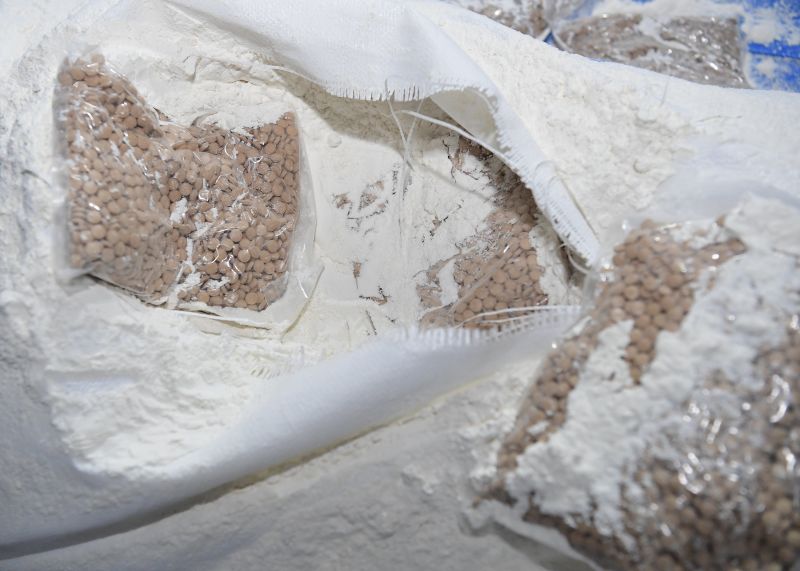
Saudi’s GDNC tracked the shipment and raided the warehouse, arresting six Syrian and two Pakistani nationals on suspicion of smuggling the drugs.
“The suspects were arrested and faced legal measures and were referred to the public prosecution,” the statement said.
The GDNC did not name the drug seized or where it arrived from.
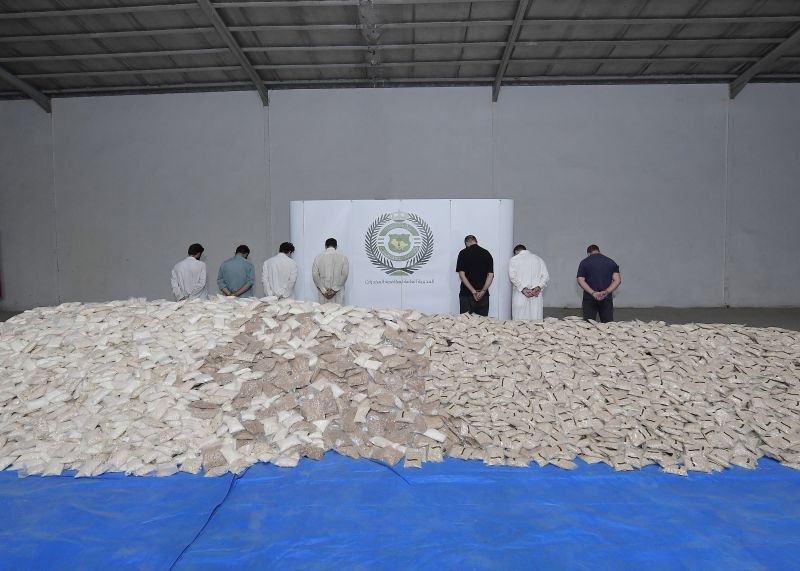
The United Nations Office on Drugs and Crime (UNODC) previously said “reports of amphetamine seizures from countries in the Middle East continue to refer predominantly to tablets bearing the Captagon logo.”
Captagon was originally the brand name for a medicinal product containing the synthetic stimulant fenethylline. Though it is no longer produced legally, drugs carrying the Captagon name are regularly seized in the Middle East, according to the European Monitoring Centre for Drugs and Drug Addiction.
The counterfeit Captagon tablets contain amphetamine as well as other chemicals, according to the UNODC.
Don't Miss
CNN — Lewis Hamilton has become accustomed to making history and, at a rain-soaked Turkish Grand Prix, the Englishman put
Kyiv, Ukraine CNN — More than 10 million Ukrainians were without power after another wave of Russian strikes on critical
Police said he was under the influence of shabu, a methamphetamine, according to local papers. Saudi media has been sounding
Hailed by Tehran as a successful entry into “a new stage of economic cooperation,” the soon-to-be accession comes as hopes to revive the 2015 nuclear agreement are diminishing, and Russia’s invasion of Ukraine has left the world in a state of polarization not seen since the Cold War.
Formed in 2001, the Asian bloc accounts for almost a third of the world’s economy. It includes ex-Soviet states Kazakhstan, Kyrgyzstan, Tajikistan and Uzbekistan, and more recently India and Pakistan. Iran had been an observer state since 2005.
While Iran’s bid for full membership was first approved last year, Wednesday’s decision comes at an awkward moment as both Iran and Western leaders had hoped that by now there would be an agreement on reviving the nuclear deal, says Trita Parsi, vice-president of the Quincy Institute in Washington, DC.
“Iran has managed to begin to break out of its isolation,” Parsi told CNN, noting that as the world turns multipolar, the West is now losing a key card it has long used to pressure Iran — namely the United States’ role as “a gatekeeper into the world economy.”
While little material relief is likely to come out of the SCO membership, Iran is likely to use the optics of Wednesday’s signing to show the world that it is not alone, said Alex Vatanka, director of the Iran Program at the Middle East Institute.
“The symbolic aspect is undeniable,” he said, noting that in practice, however, it will mean very little in the short term for Iran.
On the sidelines of the summit, which took place on Thursday and Friday in the Uzbek city of Samarkand, Iranian President Ebrahim Raisi was pictured meeting with Russian President Vladimir Putin.
“In the short term, [Ebrahim] Raisi will get another smile from Vladimir Putin and some handshakes,” said Vatanka. “But it means nothing in economic terms.”
The alliance, therefore, seems mostly political, especially as Russia and China move away from the West and get closer to the Middle East.
“Iran interprets its membership in the framework of its regional security agenda of curtailing US regional influence and encroachments,” said Fardin Eftekhari, an expert on Iranian national security and foreign policymaking, noting that the SCO shouldn’t be compared to Western security blocs like NATO, primarily “due to its membership diversity and the lack of sustaining agenda.”
Tehran is therefore “testing a new pattern of multilateral security relationships within the SCO,” he added.
Some attribute Iran’s increasing alignment with Russia and China to the US’ failure to effectively leverage its influence while it still could.
The majority of UN Security Council states opposed using sanctions as a strategy to discipline Iran in 2020. Many states feared that it would only push Tehran into the arms of Russia and China, said Parsi.
But as former US President Donald Trump withdrew from the deal in 2018 and imposed a “maximum pressure” campaign on Iran, the Persian Gulf state started looking for new alliances.
In June, Iran also applied to join a group of emerging economies known as BRICS, which includes Brazil, Russia, India, China and South Africa. It has been selling its crude to China in an effort to cling to its last economic lifeline as Western countries refuse to buy its oil.
Iran has also been selling what US officials believe are weapons-capable drones to Russia at a time when Moscow is waging the largest European war since 1945.
Iran’s famous 1979 revolution slogan, “Neither East, Nor West,” points to the degree to which both the Iranian people and the ruling elite wanted to avoid a scenario where dependence on either Russia or the US was necessary.
Yet Western attempts to isolate Iran have pushed it in a direction that analysts say might prove detrimental for Tehran in the long run, even if there is slight short-term relief to its crippled economy.
“Had it not been for 30 or 40 years of sanctions on Iran, I think we would have seen a very different orientation of Iran,” said Parsi, adding that while it wouldn’t have necessarily been completely allied to the West, Iran’s foreign policy would have at least been a balanced one where there is less dependency on the East.
“Russia and China alone cannot compensate for what Iran could have had if it had a slightly more mainstream foreign policy,” said Vatanka.
The digest
UAE foreign minister in Tel Aviv for two-year Abraham Accords anniversary
The United Arab Emirates Foreign Minister Sheikh Abdullah bin Zayed al-Nahyan arrived in Israel’s Tel Aviv on Wednesday to mark two years since the signing of the Abraham Accords, the Emirati state news agency WAM said.
- Background: Sheikh Abdullah was set to meet Israel’s Prime Minister Yair Lapid at his residence in Jerusalem on Thursday, Israel’s government said. The visit will span several days to commemorate the normalization agreement, signed two years ago after the UAE formally ended its near-half-century boycott of Israel. This is the Emirati top diplomat’s second official visit to Israel. His first was to attend a meeting held in the southern Israeli city of Sde Boker in the Negev desert in March.
- Why it matters: The agreement opened doors to bilateral economic activity and security cooperation. Thousands of Israeli tourists now visit Dubai and other Emirati cities, while trade between both countries has steadily risen. The countries continue to cooperate on security and at a landmark meeting hosted by Israel in March, the UAE joined other Arab countries to demonstrate their newly formed close partnership.
Saudi crown prince to travel to London for condolences but won’t attend funeral
- Background: The crown prince will return to Saudi Arabia right after he offers his condolences, the source added. Another senior member of the Saudi royal family may attend the funeral, according to the source.
- Why it matters: MBS had avoided traveling to Western states since the killing of Saudi journalist Jamal Khashoggi in October 2018 at the hands of Saudi agents. In July, he visited Greece and France, his first European Union trip since the murder. The crown prince last visited the UK in March 2018.
Five more banks in Lebanon held up by customers demanding access to savings
Customers held up at least five banks around Lebanon on Friday in an attempt to retrieve frozen savings just two days after the last such hostage situation, a Lebanese army official told CNN. In one incident, an armed man entered a bank and poured gasoline on the floor, threatening to burn the branch down if he wasn’t given access to his funds, state news agency NNA reported. He was able to retrieve around $19,000 and handed it to someone waiting outside the bank before handing himself to authorities.
- Background: Since October 2019, Lebanon has implemented severe restrictions on cash withdrawals as the country faces economic collapse. On Wednesday, two hostage situations at different banks took place in Beirut. In one incident, a woman managed to take a total of $20,000 from her account after taking hostages at a bank with a toy gun.
- Why it matters: Hostage takings are becoming more common in heavily armed Lebanon as citizens whose savings are frozen by banks say they are left with no option to retrieve their funds. In some cases, the hostage takers have said they have done so to help pay for their loved ones’ medical treatment.
What to watch
Under the reign of Queen Elizabeth II, Britian’s relationship with the Middle East significantly changed as colonial structures collapsed and strategic partnerships formed, some of which are sustained to this day.
Watch the full report with CNN’s Becky Anderson here:
Around the region
Minted in AD 69, the “exceedingly rare” quarter shekel is estimated to be worth over $1 million, according to the Manhattan District Attorney’s office, which hosted a repatriation ceremony in New York on Monday.
The move comes 20 years after Israeli authorities first learned, via informants, that the silver coin had been discovered by antiquities looters in the Ella Valley, south of Jerusalem. It is believed to be one of a cache of coins found by thieves in the area, which is home to numerous important archeological sites.
Investigators say the item entered the black market before being smuggled to the UK through Jordan. It was then exported to the US using false paperwork. In 2017, Homeland Security officers seized the coin in Denver, Colorado, where it was due to be offered at auction.
The kingdom of Judaea fell under Roman control in AD 6, though resistance to imperial rule led to a series of revolts known as the Jewish-Roman Wars. The coin dates to the fourth year of the First Jewish Revolt, also known as the Great Jewish Revolt, which began in AD 66.
Don't Miss
Editor’s Note: Monthly Ticket is a CNN Travel series that spotlights some of the most fascinating topics in the travel
CNN — Iranian soccer player Sardar Azmoun has been picked in the nation’s squad for the upcoming World Cup in
Putin made the comments when meeting Chinese leader Xi Jinping in person for the first time since the invasion at
An effort to save the Iran nuclear deal appeared to hang in the balance on Thursday after Washington said Tehran’s latest reply to the European Union proposal was “not constructive.”
A US State Department spokesperson said the United States had received Iran’s response to the EU bid to revive the 2015 deal and would formulate its own response.
“We are studying it and will respond through the EU, but unfortunately it is not constructive,” the State Department spokesperson said.
Iran sent its reply to the EU on Thursday after careful examination, Iranian Foreign Ministry spokesperson Nasser Kanaani said in a statement on Telegram.
“The sent text has a constructive approach with the aim of finalizing the negotiations,” the statement said.
Early in August, EU officials sent the US and Iran what it called the “final text” of a revived deal to limit Tehran’s nuclear program in exchange for sanctions relief.
Iran and the US have since exchanged responses on sticking points to fully implement the nuclear pact, also known as the Joint Comprehensive Plan of Action (JCPOA).
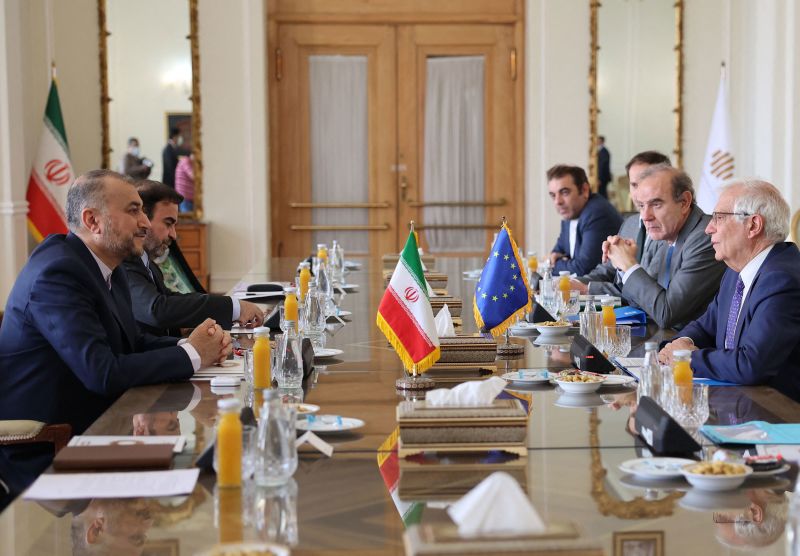
Iran’s President Ebrahim Raisi and Foreign Minister Hossein Amir-Abdollahian both reiterated this week that a probe by the United Nations nuclear watchdog into uranium traces previously found at undeclared research sites in Iran would need to be closed before Tehran agreed to return to the deal.
International Atomic Energy Agency (IAEA) Director General Rafael Grossi told CNN last week that his organization will not close the investigation unless it receives answers from Iran.
Amir-Abdollahian said during a press conference with Russian Foreign Minister Sergey Lavrov on Wednesday that Iran is also seeking “stronger text on guarantees,” without specifically naming the assurances sought by Tehran.
US officials had previously voiced some optimism around the latest efforts to revive the nuclear deal, which the US left in 2018 during the Trump administration and which Tehran has increasingly violated since then. However, they also stressed that gaps remain between the two sides.
It is also expected to face significant domestic opposition from US congressional lawmakers, and has been denounced by Israel, whose prime minister said “will act to prevent Iran from becoming a nuclear state.” The negotiations over the nuclear deal are also set against a backdrop of continued concerns about threats from Iranian and Iranian-backed military groups.
Biden administration officials have previously claimed that Tehran dropped a number of demands that were in earlier drafts of the text meant to restore the 2015 agreement, including the condition that the Islamic Revolutionary Guard Corps (IRGC) be de-listed as a foreign terrorist organization.
Don't Miss
Story highlights Latest craze in Moscow is war game in which players race to find nuclear codes Russian officials are
Abu Dhabi, United Arab Emirates Iran’s Supreme Leader Ayatollah Seyyed Ali Khamenei was seen attending an event at a mosque
(CNN) — After two years of a pandemic, ever-changing travel restrictions and mandated Covid-19 tests, the summer of 2022 signaled

